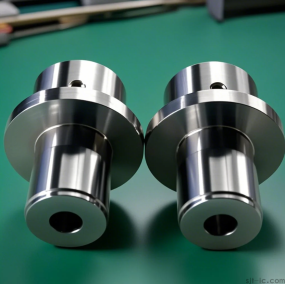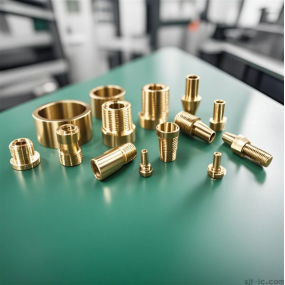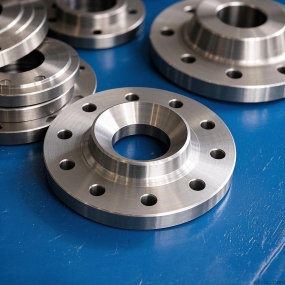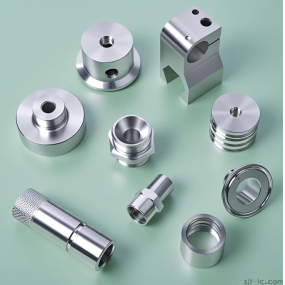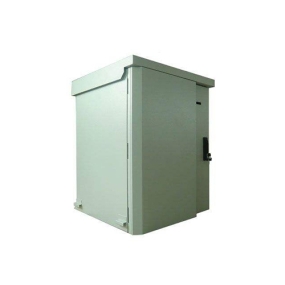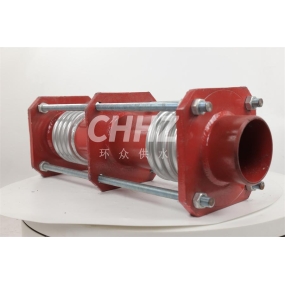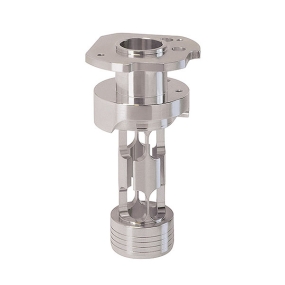Precision copper machining is a complex process that requires high-end technical and equipment support. The following is an introduction and analysis of the characteristics of precision copper machining:
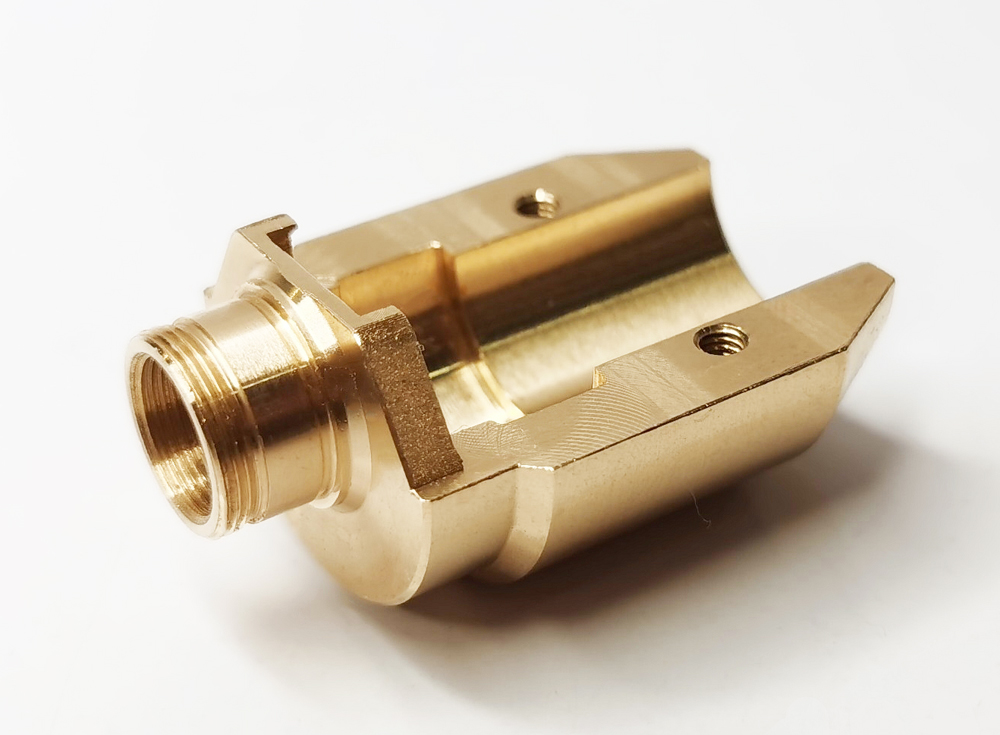 Precision copper processing first requires the selection of high-quality copper materials, such as high-purity copper, which have good electrical conductivity, thermal conductivity, corrosion resistance and plasticity. During processing, the quality of materials and processing parameters need to be strictly controlled to ensure the accuracy and quality of the final product.
Precision copper processing first requires the selection of high-quality copper materials, such as high-purity copper, which have good electrical conductivity, thermal conductivity, corrosion resistance and plasticity. During processing, the quality of materials and processing parameters need to be strictly controlled to ensure the accuracy and quality of the final product.
The machining process mainly includes steps such as smelting and casting, rolling and drawing, cutting and machining, and surface treatment. High-precision machining and machining control are carried out using high-precision machining equipment, such as numerical control lathes, numerical control milling machines, numerical control grinders, etc. These equipment has the advantages of high precision, high efficiency, and high stability, which can meet the requirements of precision copper machining. When machining, high-quality cutting tools, fixtures, measuring instruments, and other auxiliary tools are also required.
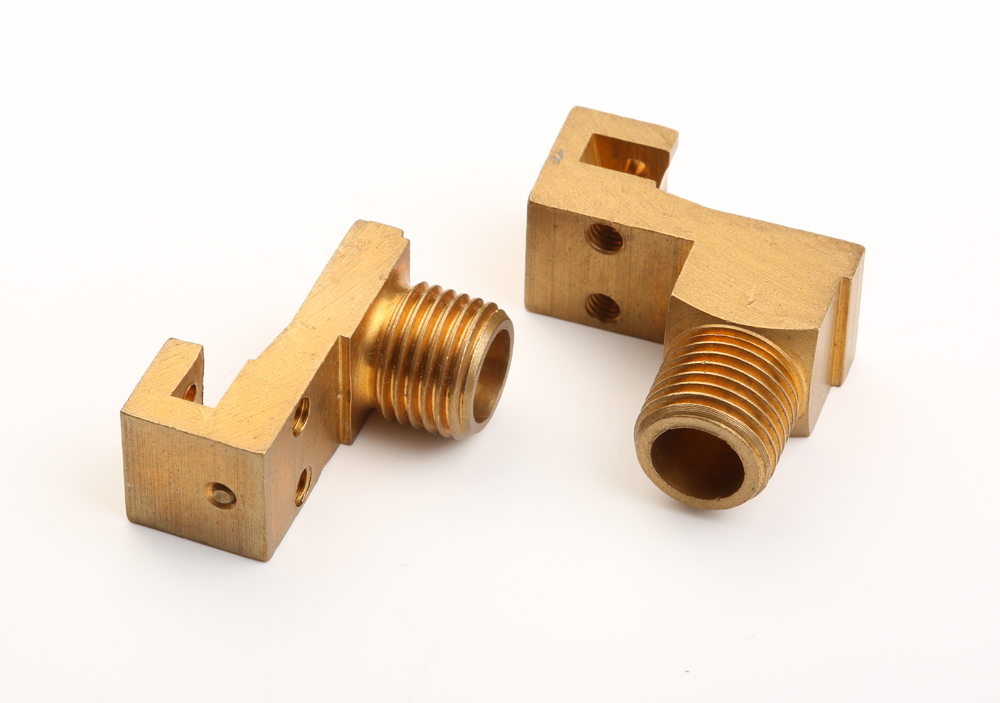 The characteristics of precision copper parts processing lie in its high precision and high reliability. Due to the good ductility and plasticity of copper materials, the processing is difficult, so it is necessary to adopt appropriate processing methods and processes, such as controlling the cutting feed speed, using sharp tools and cooling the workpiece, etc., to ensure the processing accuracy and quality. At the same time, the surface of copper parts is prone to oxidation, discoloration and other problems, and it is necessary to adopt appropriate surface treatment methods, such as polishing, sandblasting, electroplating, etc., to improve its corrosion resistance, aesthetics and service life.
The characteristics of precision copper parts processing lie in its high precision and high reliability. Due to the good ductility and plasticity of copper materials, the processing is difficult, so it is necessary to adopt appropriate processing methods and processes, such as controlling the cutting feed speed, using sharp tools and cooling the workpiece, etc., to ensure the processing accuracy and quality. At the same time, the surface of copper parts is prone to oxidation, discoloration and other problems, and it is necessary to adopt appropriate surface treatment methods, such as polishing, sandblasting, electroplating, etc., to improve its corrosion resistance, aesthetics and service life.
In addition, precision copper parts processing is widely used in many fields, such as machinery manufacturing, electronics industry, communication equipment and automotive industry. These fields require high precision and quality of copper parts, and precision copper parts processing can meet these requirements, providing a guarantee for the stable operation of various equipment.
In short, precision copper processing is a complex and important process that requires high-end technology and equipment support. With the progress of science and technology and the development of industry, precision copper processing will usher in a broader development prospect.


 Spanish
Spanish Arabic
Arabic French
French Portuguese
Portuguese Belarusian
Belarusian Japanese
Japanese Russian
Russian Malay
Malay Icelandic
Icelandic Bulgarian
Bulgarian Azerbaijani
Azerbaijani Estonian
Estonian Irish
Irish Polish
Polish Persian
Persian Boolean
Boolean Danish
Danish German
German Filipino
Filipino Finnish
Finnish Korean
Korean Dutch
Dutch Galician
Galician Catalan
Catalan Czech
Czech Croatian
Croatian Latin
Latin Latvian
Latvian Romanian
Romanian Maltese
Maltese Macedonian
Macedonian Norwegian
Norwegian Swedish
Swedish Serbian
Serbian Slovak
Slovak Slovenian
Slovenian Swahili
Swahili Thai
Thai Turkish
Turkish Welsh
Welsh Urdu
Urdu Ukrainian
Ukrainian Greek
Greek Hungarian
Hungarian Italian
Italian Yiddish
Yiddish Indonesian
Indonesian Vietnamese
Vietnamese Haitian Creole
Haitian Creole Spanish Basque
Spanish Basque

